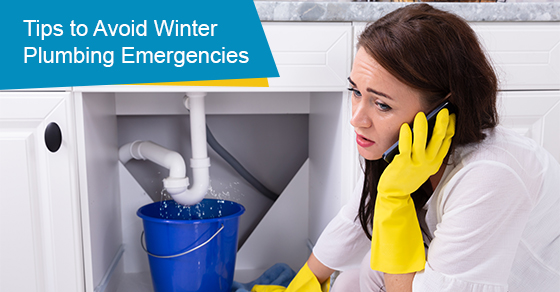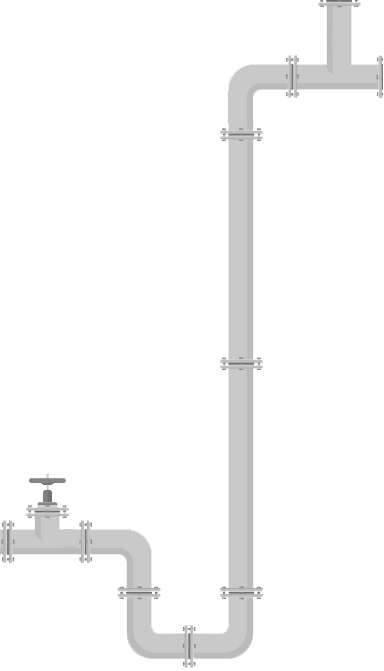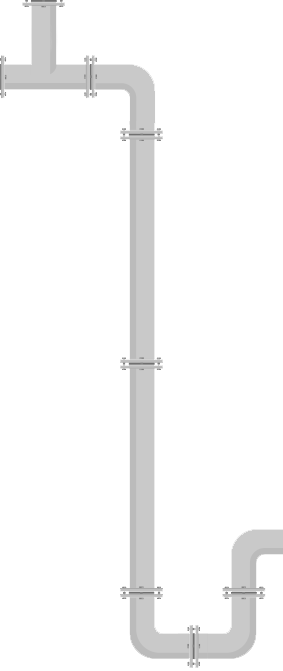Tips to Avoid Winter Plumbing Emergencies
Posted by Jason Genah on 10-12-2020

As winter approaches with frigid temperatures around the corner, you must take precautionary measures to prevent costly plumbing emergencies from frozen and broken pipes.
An extended period of wintry conditions and iciness increases the likelihood of experiencing problems with your water pipes compared to mild winters. Winter plumbing maintenance will save you from costly repair and ensure that your family has flowing water throughout the cold season without any inconveniences.
Here’re a few tips to prepare your home this winter and avoid unnecessary water wastage, property damage, and high repair costs of burst pipes:
1. Inspect water line for cracks and leaks
As the cold weather sets in, you may start noticing faults in your water pipes and fixtures, such as leaks or even no water reaching your taps. You should call your plumber as soon as possible to check for leaks or frozen water lines.
Otherwise, you should be proactive about preventing winter plumbing problems by hiring a plumber to inspect your lines regularly for cracks or other damage to prevent leaks and install adequate insulation where necessary.
2. Insulate water pipes
Frozen water is dangerous because it will expand and cause the pipes to burst. Once the water melts, it will leak into your home and damage your property. You can prevent frozen pipes by ensuring that they are adequately insulated and get enough heat in the dead of winter.
A professional plumber can assist with getting the right insulation for your pipes, as well as cleaning any clogged drains that may cause the pipes to freeze faster. They can also recommend ways to get enough warmth to pipes in your basement, garage, and other colder parts of your home.
3. Drain unused water pipes
You can prevent many winter plumbing issues by draining any water pipes you don’t plan to use during winter. That includes your hose pipes and sprinklers. Any water left in the lines is likely to freeze, and any ice in your pipes can damage them by causing cracks that result in leaks.
Close the drain shut-off valves leading outside to prevent frozen water in indoor pipes. If there are specific bathrooms, fixtures, or appliances that won’t be used during the cold winter months, you can ask your plumber to install a valve to prevent water from reaching those specific areas of your home.
4. Install removal screens in all drains
Drains tend to clog more regularly during the cold months compared to other times of the year. Professional plumbers can inspect your sewer lines to identify any potential causes of clogging and make the necessary fixes to reduce the risk of this happening in winter. That may include installing new removable screens in all the drains to manage what goes down the drain.
5. Clean your water heater
The lack of hot water during winter is an emergency that requires you to contact your plumber as soon as possible to get the water heater inspected. Depending on the cause of the problem, your plumber may recommend minor repairs or replacement. Corrosion in the tank may also cause the water heater to run inefficiently. In such a case, the plumber may recommend flushing the tank to improve efficiency.
To prevent problems with your water heater during winter, it’s important to schedule annual cleaning and maintenance of your water heater and sump pump. Maintenance is necessary to remove debris and sediments, and minerals if you use hard water, to keep the quality of water in your home clean and prevent damage to other fixtures, appliances, and even your home’s interior.
6. Clean out the septic tank
Your septic tank may burst during winter, forcing you to seek emergency plumbing services, which can be very expensive. To prevent septic problems during the cold months, you should hire a professional plumber to clean them out before winter.
7. Check the location and condition of the meter shut-off valve
You should know where your main water shut-off valve is located and ensure that it is operable if you need to turn off the water to your home. This knowledge will be beneficial even when you have other emergencies that require you to shut off the water in your home. If there is a damaged pipe in your home, the shut-off valve will allow you to quickly stop more water from flowing into your house to prevent further damage. This valve is usually located outside your house, where the main water line branches into your home from the street, and just before the water meter.
If a wrench is needed to turn the valve off, you should get one and label it so you can find it quickly during an emergency. If any of the shut-off valves are defective, then you should contact your water company to fix the main shut-off valve or a professional plumber to fix the shut-off valves inside your home. To repair the valve outside your house, your water company will have to shut off the water in your street.
Handling Plumbing Emergencies
If you have a leak or other plumbing emergency, the first thing you do should be to stop the flow of water. So every member of your family must know the location of the main shut-off valve outside your house, or individual water valves for each fixture and appliance, and how to operate them. Beyond that, you will probably need to call a professional plumber to fix the problem and get water flowing in your house again.
First, for emergencies involving a specific appliance or fixture, find its shut-off valve to prevent water from reaching that particular appliance or fixture only. The valve is typically located behind the device or underneath the fixture, if it’s a sink or toilet. If there’s no unique shut-off valve for the appliance or fixture, or the problem doesn’t involve a particular one, then you should shut off the main valve outside your house to turn off the water supply to the whole house.
Check Your Plumbing Before Winter
If you plan on being away from your home for a long time during winter, you should be careful about lowering your heat too much to reduce your heating bill because this can result in frozen and burst pipes.
To avoid this, make sure to turn off your water and then open all the taps in your house and flush the toilets to drain water in the pipes. This reduces the risk of water in the pipes freezing, expanding, and breaking the lines.
During winter plumbing maintenance, your professional plumbers will handle your annual maintenance for the water lines and appliances and do everything they can to help you prepare your plumbing for winter to prevent costly and inconvenient emergencies.
For more tips to help you avoid a plumbing emergency this winter, call Drain King Plumbers at 833-983-5663 or contact us here.




